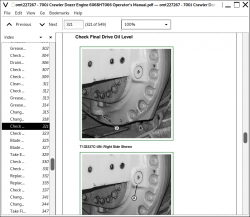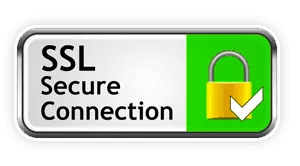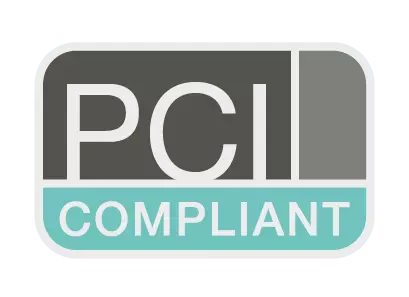John Deere 700J Crawler Dozer Operator's Manual (OMT227267)
Complete operator's manual for John Deere 700J Crawler Dozer, with all the technical information to maintain & operate.
omt227267 - John Deere 700J Crawler Dozer (Engine 6068HT066) Operator's Manual.pdf
omt227268 - John Deere 700J Bulldozer sobre orugas.pdf
omt228406 - John Deere Planierraupe 700J.pdf
omt239601 - John Deere Apripista cingolato 700J.pdf
omt227269 - John Deere 700J Bouteur chenillé.pdf
omt301968 - John Deere Trator de Esteiras 700J.pdf
omt303553 - John Deere 700J 履带式推土机.pdf
PRODUCT DETAILS:
Total Pages: 549 pages
File Format: PDF (Internal Links, Bookmarked, Table of Contents, Searchable, Printable, high quality)
Language: English
Category: Operator's Manual
Language: Spanish English French German Italian Chinese Portuguese
Published on 2019/10/11
omt227267 - 700J Crawler Dozer Engine 6068HT066
Table of Contents
Foreword
IMPORTANT
License Agreement for John Deere Software
Conformity Marking for European Union (EU) and Eurasian Economic Union (EAEU)
EPA Non-road Emissions Control Warranty Statement—Compression Ignition
CARB Non-road Emissions Control Warranty Statement—Compression Ignition
Technical Information Feedback Form
Section 1-1: Safety—Safety and Operator Conveniences
Safety and Operator Convenience Features
Section 1-2: Safety—General Precautions
Information for European Union Directives and Eurasian Economic Union Technical Regulations Compliance
Recognize Safety Information
Follow Safety Instructions
Operate Only If Qualified
Wear Protective Equipment
Avoid Unauthorized Machine Modifications
Inspect Machine
Stay Clear of Moving Parts
Avoid High-Pressure Fluids
Avoid High-Pressure Oils
Work In Ventilated Area
Prevent Fires
Prevent Battery Explosions
Handle Chemical Products Safely
Decommissioning — Proper Recycling and Disposal of Fluids and Components
Prepare for Emergencies
Clean Debris from Machine
Add Cab Guarding For Special Uses
Section 1-3: Safety—Operating Precautions
Use Steps and Handholds Correctly
Start Only From Operator's Seat
Use and Maintain Seat Belt
Prevent Unintended Machine Movement
Avoid Work Site Hazards
Keep Riders Off Machine
Avoid Backover Accidents
Avoid Machine Tip Over
Operating or Traveling On Public Roads
Inspect and Maintain ROPS
Add and Operate Attachments Safely
Prevent Unintended Detonation of Explosive Devices
Section 1-4: Safety—Maintenance Precautions
Park and Prepare for Service Safely
Service Cooling System Safely
Remove Paint Before Welding or Heating
Make Welding Repairs Safely
Drive Metal Pins Safely
Section 1-5: Safety—Safety Signs
Safety Signs
Section 2-1: Operation—Operator's Station
Instrument Panel
Instrument Panel Functions
Warm-Up Indicator
Air Conditioning and Cab Heater
Windshield Wiper and Washer Controls
Horn Switch
Operating Cab Lights
Side Windows—Secondary Exits
Adjust Deluxe Mechanical Suspension Seat—If Equipped
Adjust Air Suspension Seat—If Equipped
Adjust Armrest
Battery Disconnect Switch
Under-Seat Heater—If Equipped
Fire Extinguisher
Section 2-2: Operation—Operating The Machine
Inspect Machine Daily Before Starting
Check Instruments Before Starting
Engine Break-In Period
Starting the Engine
Starting Fluid (Cold Weather Starting Aid)—If Equipped
Using Coolant Heater—If Equipped
Engine Warm-Up
Cold Weather Warm-Up
Transmission Control Lever (TCL)
Driving the Machine
Steering the Machine
Using Engine Speed Control Knob
Travel Speed Using Transmission Control Lever (TCL)
Foot Pedal
Using Park Lock Lever
Hydraulic Pilot Enable Switch/Hydraulic Accumulator Discharge—EH Machines Only
Stopping the Machine
Parking the Machine
Blade Pitch Operation
Blade Pitch Linkage Adjustment
Operating Blade
Tilting Blade
Angling Blade
Avoid Track Damage
Blade Control Lever—Operation
Ripper Control Lever—If Equipped
Operating 4000S Winch—If Equipped
Fasten Cable to Winch Drum—4000S Series
Winch Free Spool Drag Adjustment
Loading Machine on a Trailer
Loading Machine with Crane—If Equipped With Lift Kit
Releasing Park Brake to Tow the Machine
Standard Display Monitor (SDM) Main Menu
Standard Display Monitor (SDM) Main Menu—Codes
Standard Display Monitor (SDM) Main Menu—Codes—Active Codes
Standard Display Monitor (SDM) Main Menu—Codes—Stored Codes
Standard Display Monitor (SDM) Main Menu—Machine Settings
Standard Display Monitor (SDM) Main Menu—Machine Settings—Job Timer
Standard Display Monitor (SDM) Main Menu—Machine Settings—Track Info
Standard Display Monitor (SDM) Main Menu—Machine Settings—Controller Info
Standard Display Monitor (SDM) Main Menu—Machine Settings—Transmission
Standard Display Monitor (SDM) Main Menu—Machine Settings—Hydraulics (EH Machines Only)
Standard Display Monitor (SDM) Main Menu—Diagnostic
Standard Display Monitor (SDM) Main Menu—Diagnostic—Live Values
Standard Display Monitor (SDM) Main Menu—Monitor
Standard Display Monitor (SDM) Main Menu—Monitor—Units
Standard Display Monitor (SDM) Main Menu—Monitor—Monitor Config
Standard Display Monitor (SDM) Main Menu—Monitor—Contrast
Section 3-1: Maintenance—Machine
Required Emission-Related Information
Engines With Tier 3-Stage IIIA/MAR-I Emission Control
Diesel Fuel
Lubricity of Diesel Fuel
Handling and Storing Diesel Fuel
BioDiesel Fuel
Testing Diesel Fuel
Minimizing the Effect of Cold Weather on Diesel Engines
Alternative and Synthetic Lubricants
Diesel Engine Break-In™ Oil
Diesel Engine Oil — Tier 3 and Stage III
Diesel Engine Oil and Filter Service Intervals
Track Rollers, Front Idler, Track Frame Pivot Oil and Carrier Roller Oil
Hydraulic and Hydrostatic Oil
Final Drive Oil
Winch Oil
Grease
Diesel Engine Coolant (engine with wet sleeve cylinder liners)
Drain Intervals for Diesel Engine Coolant
John Deere COOL-GARD™ II Coolant Extender
Supplemental Coolant Additives
Operating in Warm Temperature Climates
Additional Information About Diesel Engine Coolants and John Deere COOL-GARD™ II Coolant Extender
Testing Diesel Engine Coolant
Section 3-2: Maintenance—Periodic Maintenance
Service Your Machine at Specified Intervals
Check the Hour Meter Regularly
Prepare Machine for Maintenance
Fuel Tank
Fluid Analysis Program Test Kits and 3-Way Coolant Test Kit
Service Intervals
Required Parts
Section 3-3: Maintenance—As Required
Inspect Serpentine Belt
Check Track Sag
Adjust Track Sag
Check Coolant
Clean or Replace Cab Fresh Air Filter
Clean or Replace Cab Recirculating Air Filter
Section 3-4: Maintenance—Every 10 Hours or Daily
Check Coolant Level
Grease Track Frame Crossbar and C-Frame Pivots
Grease Dozer Linkage
Check Engine Oil Level
Draining Fuel and Water Separator Sediment
Check Hydraulic Oil Level
Check Transmission Oil Level
Clean Air Cleaner Dust Unloader Valve
Check Winch Oil—If Equipped
Section 3-5: Maintenance—Every 50 Hours
Grease Ripper—If Equipped
Section 3-6: Maintenance—Initial Service - 250 Hours
Change Engine Break-In Oil and Filter
Section 3-7: Maintenance—Every 250 Hours
Check Final Drive Oil Level
Blade Pivot Shim Adjustment (—XXXXXX)
Blade Pivot Shim Adjustment (XXXXXX—)
Take Engine Oil Sample
Section 3-8: Maintenance—Every 500 Hours
Check Air Intake Hose
Replace Primary Fuel Filter
Replace Final Fuel Filter
Check Battery Electrolyte Level and Terminals
Change Engine Oil and Filter
Change Winch Oil Filter—If Equipped
Take Fluid Samples
Section 3-9: Maintenance—Every 1000 Hours
Clean Engine Crankcase Ventilation Tube
Change Final Drive Oil
Check Track Frame Pivot Oil Level
Replace Air Cleaner Elements
Replace Air Cleaner Dust Unloader Valve
Change Winch Oil and Filter—If Equipped
Clean or Replace Winch Hydraulic Breather Filter—If Equipped
Check Coolant
Section 3-10: Maintenance—Every 2000 Hours
Adjust Engine Valve Lash (Clearance)
Change Hydraulic Oil and Filter
Change Transmission Oil and Filter
Section 3-11: Maintenance—Every 4500 Hours
Replace Engine Crankshaft Dampener
Section 3-12: Maintenance—Every 6000 Hours
Drain the Cooling System
Fill the Cooling System
Section 4-1: Miscellaneous—Machine
Opening and Closing the Grille
Clean the Engine Air Precleaner Screen
Blade Installation—Initial
Do Not Service or Adjust Injection Nozzles or Injection Pump
Inspecting and Cleaning Dusty Primary Element
Precautions for Alternator and Regulator
Using Booster Batteries—24-Volt System
Using Battery Charger
Handling, Checking and Servicing Batteries Carefully
Replacing Batteries
Removing Batteries
Welding On Machine
JDLink™ Machine Monitoring System (MMS)—If Equipped
Fuse Specifications (S.N. —150489)
Fuse Specifications (S.N. 150490— )
Fuse Specification—EH Machines
Lubricating Door Latches
Check Air Conditioner Refrigerant Level—If Equipped
Track Sag General Information
Check and Adjust Idler Vertical Movement
Checking Track Carrier Roller Oil Level
Check Front Idler Oil Level
Adding Oil to Track Roller
Do Not Service Control Valves and Cylinders
Keep ROPS Installed Properly
Checking Track Shoe Cap Screw Torque
Hardware Torque Specifications
Metric Bolt and Screw Torque Values
Unified Inch Bolt and Screw Torque Values
Section 4-2: Miscellaneous—Operational Checkout
Operational Checkout
Section 4-3: Miscellaneous—Troubleshooting
Troubleshooting Procedure
Engine
Electrical System
Hydraulic System
Hydrostatic Transmission
Gauges and Indicators
Access Diagnostic Trouble Codes (DTCs)
Section 4-4: Miscellaneous—Storage
Prepare Machine for Storage
Avoid Track Damage
Monthly Storage Procedure
Section 4-5: Miscellaneous—Machine Numbers
Record Product Identification Number (PIN)
Record Engine Serial Number
Keep Machines Secure
Keep Proof of Ownership
Section 4-6: Miscellaneous—Specifications
700J Crawler Dozer Dimensions
700J Crawler Dozer Specifications
700J Crawler Dozer Weights
700J Dozer Drain and Refill Capacities
700J Parallelogram Ripper
4000S Winch
Eurasian Economic Union
Machine Design Life
John Deere 700J Crawler Dozer Operator's Manual (OMT227267)







